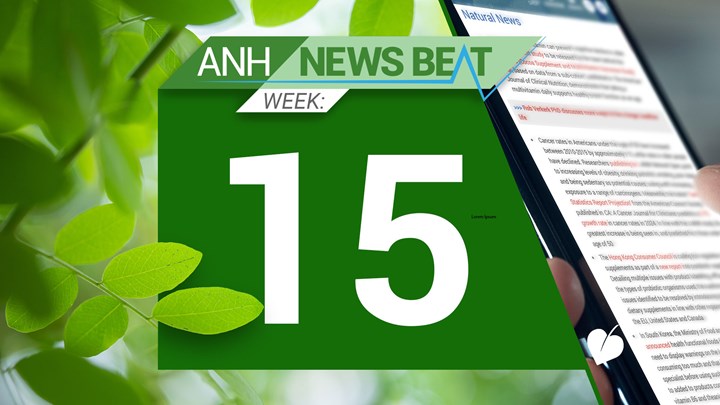Content Sections
UK Govt opts for prevention
The UK government has this week called for people to take more responsibility for their own health to tackle the rise in obesity and chronic diseases. Its plan, ‘Prevention is better than cure’ sets out a vision to help people live well for longer. Urging individuals, the NHS and local authorities to ‘put prevention at the heart of everything they do’, Health Secretary, Matt Hancock, said in his speech outlining government plans, “Our focus must shift from treating single acute illnesses to promoting the health of the whole individual. And from prevention across the population as a whole to targeted, predictive prevention.” A hallelujah moment for many of us given how long we, and others, have campaigned for an upstream, citizen-led, disease prevention model of healthcare that is both sustainable and focused on optimising health and wellbeing. However, recognising that Government calls for a shift in healthcare focus are all very well, but that mainstream medicine is ill equipped to deliver what’s needed. Such a model for moving from disease management to disease prevention and health creation is core to our ‘Blueprint for health system sustainability’. If you would like to endorse the ‘Blueprint’ please contact our outreach and comms officer, Melissa Smith on [email protected] for more information and to see a copy of the pre-publication ‘Blueprint’.
Breakfast with a little poison on the side?
Increasing evidence points to the grave threat to human health posed by glyphosate, the active ingredient in Monsanto’s Roundup herbicide. Previously, our sister organisation ANH-USA, tested popular breakfast foods in a lab and found evidence of glyphosate contamination in all the products tested. Now the Environmental Working Group (EWG) in the US has published the results of more tests they’ve carried out on popular US oat-based breakfast cereals. In the most recent tests virtually all samples tested (26 out of 28) contained glyphosate residues at levels higher than those considered safe by the EWG. The EWG’s first round of testing also showed levels in tested cereals above EWG standards. Big Food has hit back stating levels are within regulatory limits set by the US Environmental Protection Agency. However, safety is not conferred just because something may be legal! Given the International Agency for Research on Cancer’s conclusion that glyphosate is a ‘probable carcinogen’, how much is too much, particularly when it comes our children’s health?
Mobile phone radiation linked to cancer
The world around us demands that we are reliant on mobile technology. However, the health effects of this technology are still being vigorously debated. Following 10 years of study, the National Toxicology Program (NTP) in the US has finally concluded there is clear evidence linking high levels of mobile phone radiation, typically found in 2G and 3G phones, with the development of cancer in rats. Despite this being the most comprehensive assessment to date, its compelling evidence continues to be swept under the carpet when it comes to the possible effects on human health. It’s not just cancer that’s of concern; electrohypersensitivity also causes severe (sometimes life threatening) health issues for those affected, greatly impacting quality of life. Our EMR campaign page has more information about electromagnetic radiation and its potential effects on our health.
The HPV vaccine juggernaut keeps rolling
GAVI (The Vaccine Alliance) has announced the introduction of the HPV vaccine into Senegal’s vaccination programme. Up to 200,000 nine-year-old girls and a further 900,000 12-14 year-old girls are predicted to be reached. The announcement comes hot on the heels of Merck’s third quarter financial report showing Gardasil sales have increased 55%, from $675 million to $1.05 billion from the third quarter of 2017. Merck’s president of global human health puts this down to an, “unprecedented increase in worldwide demand for the HPV vaccines”. We hope that Senegalese parents will be party to a fully informed consent process and at the same time be given unbiased information about the vaccine, including its potential to cause harm, before their child is vaccinated.
UK medical cannabis hopes dashed
The UK government supposedly legalised the use of medical cannabis on 1stNovember 2018. However, having raised patients’ hopes, prescribing guidelines issued on 31 October 2108 have been deemed so restrictive virtually no-one will get access to medical cannabis in the UK. This has dealt a particularly crushing blow to those families with seriously ill children whose only hope for relief is medical cannabis. A petition has been started to get the help for the people who so desperately need it. You can add your voice to the many calling for the regulators and the UK Government to provide proper access to medical cannabis for those who truly need it. Sign the petition.








Comments
your voice counts
08 November 2018 at 10:30 am
I hope the 'Blueprint' includes asking the government to take VAT off food supplements and allowing qualified nutritionists to recommend vitamins on the NHS.
08 November 2018 at 11:28 am
You would do well to educate your readership on more than just 'possible carcinogenic' effects of glyphosate. The world is awash with 'carcinogens' without any real sense of proportionate risk levels or relative significance of factors contributing to immunity or ability to regenerate (heal). Of course not all is 'proven' but our gut biome is attacked and as I understand it, (Zach Bush) the 'leaky gut' (as a breach of our natural defence) is directly but no necessarily exclusively associated with glyphosate. Stephanie Seneff et al are actively researching other negative synergetic effects that may include replacement of glycogen - and thus blocking of glycogen functions. I realise you cant come out on eugenics as a movement that went underground to deal by stealth what couldn't be politically enacted.
Of course an 'official' alignment to preventative approach and responsibility for heath is welcome but I see the narrative distortions as a form of social engineering that take 30 years or so to begin to correct - but in which time the goal posts have all been moved and power has repositioned itself to gain by its own token surrender. So what would it be to be creative rather than reactive or responsive to something 'gone wrong' - be that a 'disease' or a deceitfully disguised toxic agenda.
Is there a 'pathway' of direct expression of wholeness of being rather than of struggle within an already compromised or conflicted sense of self and world?
I wouldn't ask if I didn't feel moved by the 'answer' - and so I remind us all that trying to avoid something is the best way to keep it in mind - even if the MEANS to do so is so focussed in that the focus in fear and sickness is not recognized for what it is.
And that joy is whole. Any of the primary qualities of being work but joy will do. To become joy-orientated in terms of a present focus and embodied act instead of a 'risk-averse' pattern of learned conditioning, is to grow the perspective or consciousness of wholness that is of course presence - and aligned action. This is so much simpler than thinking about it - and yet denied presence BY continually thinking about imagined past and future scenarios.
Context is everything - in that a false context or false framing will distort all that occurs within it - hence the narrative control or 'mind-capture' of advertising, PR and social engineering. Checking in - currently - for our true alignment in wholeness is a persistence of orientation, and not an addiction to specific outcomes. And this is natural to a genuinely felt and shared sense of worth. And so keeping our 'lamp lit' is vigilance against the propaganda of cynicism - or its disguise in getting a false sense of worth set over and against the evils of a cynically directed narrative control.
'War on - whatever' works the opposite of uncovering and revealing the true nature of - whatever. But it 'feels good' to the persistence of a mass unconsciousness as a moment that operates the momentum of conditioned reaction in place of conscious reintegration and realignment. Jumping threads - it is stressful to uncover or expose otherwise hidden negative thought and feeling and may be intolerably so. But in the conscious willingness to heal is the trust that opens the capacity to feel all that we feel - without judgement. Herein is a profound self-honesty even if our minds cannot or reassert 'control' and of course a transformational experience and perspective going forth. One step at a time is all we ever take and living this one well is where we truly know and share life - in whatever moments of happenstance and relationship.
09 November 2018 at 1:19 am
Medical Cannabis has had yrs of use and study proving its safety and effectiveness in many Various ailments. It’s time to do the right thing for ones who so badly need this treatment!!
Your voice counts
We welcome your comments and are very interested in your point of view, but we ask that you keep them relevant to the article, that they be civil and without commercial links. All comments are moderated prior to being published. We reserve the right to edit or not publish comments that we consider abusive or offensive.
There is extra content here from a third party provider. You will be unable to see this content unless you agree to allow Content Cookies. Cookie Preferences